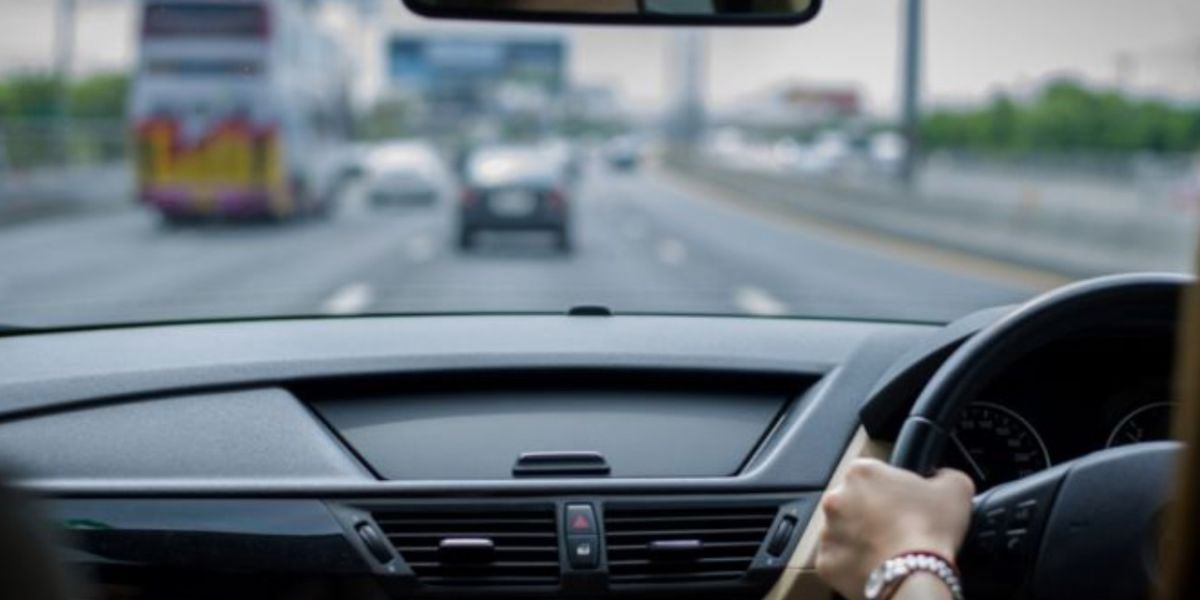
When driving in Thailand, it is important to adapt. There are likely to be different road rules and common practices than in your home country, and refusing to acknowledge them can be dangerous. In Thailand, drivers drive on the left-hand side of the road, although this is sometimes not adhered to. Although the country's road networks are relatively well developed compared to other countries in Asia, you can still come across areas where the roadwork isn't clearly indicated or dangerous turns aren't highlighted.
You should also be aware of anything crossing your path, especially street dogs. Whether entering, exiting, or driving through a roundabout, it is important to exercise caution, as cars and motorbikes don't yield to drivers already in the circle.
Rarely will you hear vehicles honking at each other in Thailand as they believe it is disrespectful to do so.
How to obtain a driver's license in Thailand
To obtain or renew a Thai driving license, you must go to your nearest Department of Land Transport Office. The required documents can vary depending on the office, so it is best to phone your local office beforehand to find out exactly what you need.
Generally, you will be required to submit the following documents if you are applying for the first time:
- a signed photocopy and translation of your national driving license;
- an original and signed photocopy of the information page and visa page of your passport;
- an original medical certificate, which can be issued at any hospital or clinic not more than a month;
- a Thai residence certificate from a local Thai immigration office, which proves your address in Thailand.
If you can't speak Thai, it is a good idea to bring along a Thai friend who can translate for you and arrive at the office in the morning.
Once you have completed the application form and submitted your documents, you will need to pay the fee for a two-year license. If you already have a national driving license from your home country, you don't have to take a driving or a written test about regulations, but you will need to take a color test. While your permit is being processed, you may be required to attend a screening of a DVD that will highlight a few fundamental aspects of Thai traffic law. You should then receive your permit, which will be valid for 2 years. After 2 years, you can renew it for 5 years, as long as you have a valid Non-Immigrant Visa.
Good to know:
Photographs aren't needed for your application, as they will take your picture at the Land Transport Office.
Annual tax registration renewal in Thailand
If you own a motorbike or a car, you must renew the registration, which comes in the form of a tax sticker each year. This is easy if your car or bike is less than 5 years old, as you simply need to go to your local Department of Land Transport Office with your vehicle documents and proof that you have paid the P.R.B. (Compulsory Motor Insurance) for the following year.
The fee for the tax sticker depends on the type and age of your vehicle, and the fee is the same each year for the first 5 years. It is then reduced by 10% each year up to a maximum of 50%.
If your car or bike is older than 5 years old, it will need to undergo a technical inspection at a certified garage before you can apply to renew your registration. If your vehicle passes the test, you will be issued a certificate that you will need to present at the Department of Land Transport Office, along with the vehicle book and proof that you have paid the motor insurance.
Driving rules in Thailand
- You must be at least 18 to drive;
- Legal limit BAC is 0.5 mg per 1 liter of alcohol;
- Drive on the left-hand side as in the UK;
- Seatbelts are mandatory in front seats only; child car seats are optional;
- Motorcyclists must wear helmets.
The speed limits in Thailand range as follows:
- 50 to 60 km/h in suburban streets;
- 90 to 120 km/h on highways.
Keep in mind that due to the high volume of traffic on Thai streets, the average speed will be determined by the general flow of the traffic. Police rarely enforce the speed limits, but there are speed cameras all along Thailand's highways. If you get caught speeding, you will be sent a ticket in the mail.
Make sure to carry your vehicle registration and driver's license at all times.
Useful links:
Information about driving in Thailand
Department of Land Transport – Renewing your licence
Department of Land Transport – Two-year license
We do our best to provide accurate and up to date information. However, if you have noticed any inaccuracies in this article, please let us know in the comments section below.








